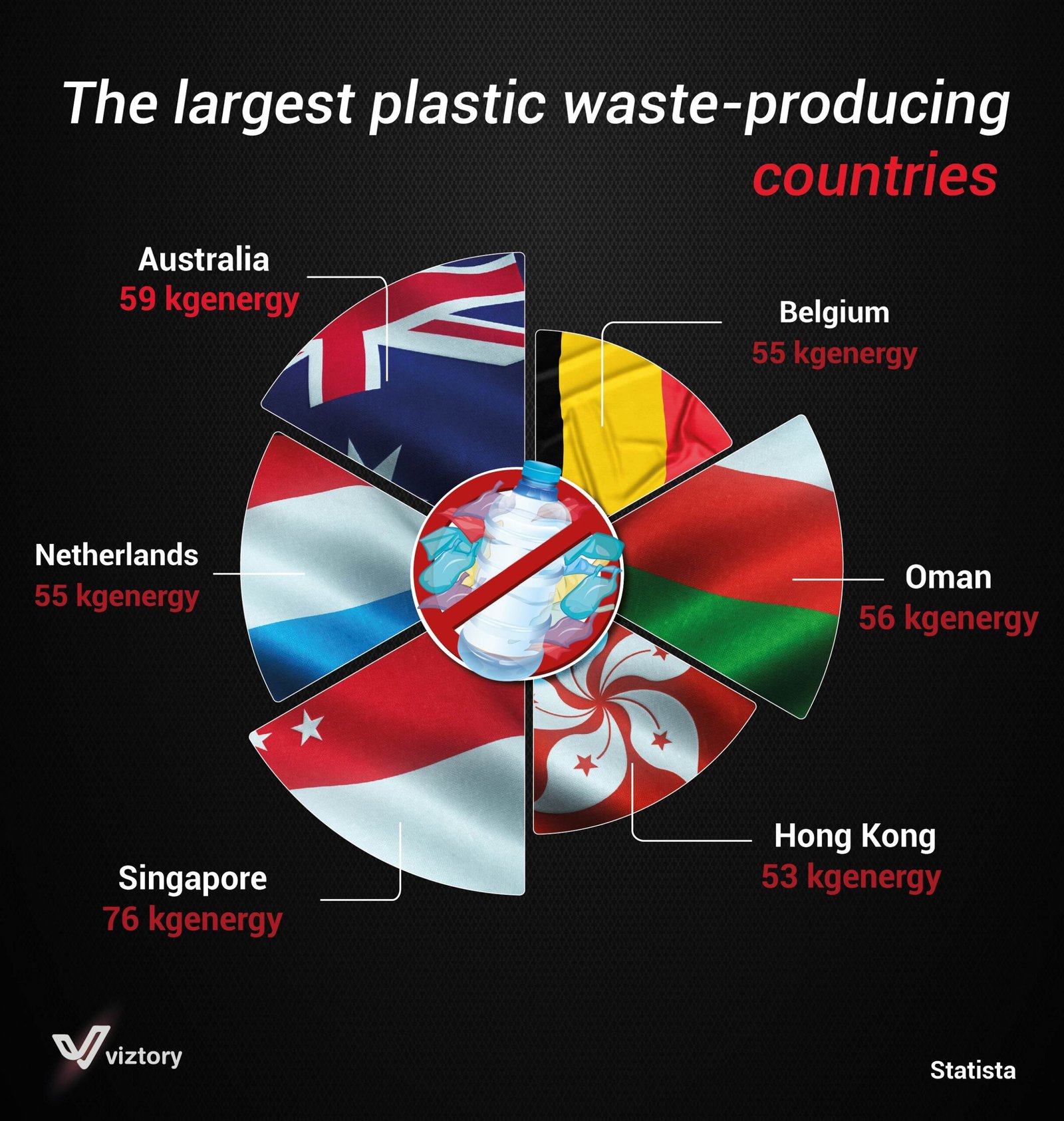The Environmental and Health Impacts of Plastic Waste
-
Aug, Wed, 2024
The Environmental and Health Impacts of Plastic Waste
The image above highlights the largest plastic waste-producing countries globally, including Singapore, Australia, Oman, Belgium, the Netherlands, and Hong Kong. The figures displayed in the visualization reflect the staggering amount of plastic waste produced per capita, measured in kilograms of energy. This issue is not just an environmental concern but also a significant public health challenge.
Plastic waste has become one of the most pressing environmental issues of our time. The widespread use of plastic, particularly single-use items, contributes to massive amounts of waste that pollute our oceans, landfills, and communities. But beyond the environmental damage, plastic waste poses a serious threat to human health, intertwining with healthcare in various alarming ways.
The Health Consequences of Plastic Waste
Plastic waste can have direct and indirect health impacts on populations worldwide. Microplastics, tiny plastic particles that result from the breakdown of larger plastic items, have been found in water sources, food, and even the air we breathe. The ingestion and inhalation of microplastics can lead to various health issues, including respiratory problems, gastrointestinal distress, and potential long-term effects that are still being studied.
Moreover, the chemicals used in plastic production, such as phthalates and bisphenol A (BPA), are known endocrine disruptors. These chemicals can leach into food and beverages from plastic containers, leading to hormonal imbalances and an increased risk of various health conditions, including cancer, obesity, and reproductive disorders.
Countries like Singapore and Australia, which are among the highest plastic waste producers, face the challenge of managing not only the environmental impact but also the associated health risks. The healthcare systems in these countries must prepare for the potential rise in health issues related to plastic waste, including increased cases of respiratory conditions and the potential long-term effects of chemical exposure.
Integrating Waste Management with Healthcare
To mitigate the health impacts of plastic waste, countries must adopt a more integrated approach that combines environmental policies with public health strategies. This could involve:
-
Reducing Plastic Consumption: Governments and healthcare providers can work together to promote the reduction of plastic use, particularly single-use plastics, by encouraging the use of alternatives and implementing stricter regulations on plastic production and disposal.
-
Public Awareness Campaigns: Educating the public about the health risks associated with plastic waste can lead to more responsible consumer behavior and increased demand for plastic-free products.
-
Improving Waste Management Systems: Enhancing waste collection, recycling, and disposal systems can reduce the amount of plastic waste that ends up in the environment, thereby decreasing the associated health risks.
-
Research and Monitoring: Continued research into the health effects of microplastics and chemicals in plastics is essential for understanding the full extent of the problem and developing effective interventions.
In conclusion, the image serves as a stark reminder of the global plastic waste crisis and its far-reaching impacts on both the environment and public health. By integrating waste management strategies with healthcare initiatives, countries can work towards a healthier and more sustainable future for their populations.

